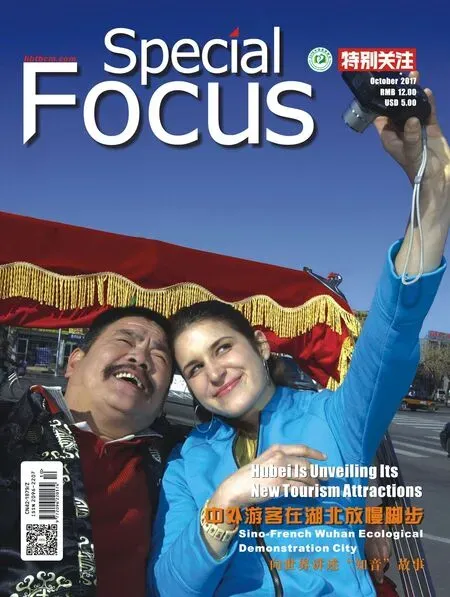The Red Envelope Game
By Yang Jinyue Translation: Zhang Lei
The Red Envelope Game
By Yang Jinyue Translation: Zhang Lei

This story is about two colleagues. They have worked at the same firm for a year. At the end of the year, the boss decides to reward them each with a tightly sealed red envelope. Both of them are very pleased to find 5000 yuan in their own red packet—but they don’t know how much the other gets.
The boss then tells them, “The two red envelopes contain either 5000 yuan or 8000 yuan, or 5000 yuan both. If you would like to swap your red packet with the other person, I will be your witness.However, I must charge each of you 100 yuan.”
One thinks that if the other red envelope has 5000 yuan as well, he shall only lose 100 yuan, but he shall earn 2900 yuan more should the other red envelope contain 8000 yuan. The chances are 50/50. It seems a good deal.
The other one thinks just the same and the two readily agree to the proposition at the same time,“We will swap!”
The result is they soon find out they are played.Both red envelopes contain 5000 yuan. Then how could the boss have easily played them?
In fact, it is a psychological game played between bosses and employees. In the beginning when the boss brought up the proposition of swapping possibly 5000 yuan to 8000 yuan, both the employees made the right calculations and decided to trade. At that moment, the game changed. If one wished to swap, the other should immediately realize that the person only had 5000—otherwise he wouldn’t agree. And when the first one heard the willingness of trading with the other, he should have realized the same fact. If both had been wise enough, they should have turned the offer down and neither of them would suffer any loss.Nevertheless, they wanted so much the 8000 yuan that the other person might have had and were“calculated” by the boss.
It’s the same in our everyday life. We should analyze sensibly when we are making decisions and try to avoid traps. Most importantly, we shouldn’t let greed grip us and expose opportunities to others. ◆
有这样一个小故事。说甲、乙两个员工在同一公司里干了一年,到年底的时候,老板为了奖励他们,给他们每人发了一个密封好的红包。甲、乙二人很高兴,各自打开红包,看到红包里装着5000元钱,但并不知道对方的红包里装了多少。
这时老板对甲、乙二人说:“红包里的钱,要么各是5000元,要么一个5000元,一个8000元。你们如果愿意跟对方调换红包,我可以给你们当公证人,不过,你们每人要给我100元公证费。”
甲心想:假如我跟乙交换红包,若他是5000元,我就相当于亏了100元公证费;如果他的红包里是8000元,扣除公证费100元,我就会净赚2900元,而这两种可能性各占50%。和乙交换是划算的。
乙的想法跟甲一样,也觉得换红包是划算的。于是,甲、乙二人异口同声地说:“我们愿意换。”
结果,二人把红包换过来一看,才知道自己上了当。实际上,两个红包里都只有5000元钱。那么,为什么老板可以轻而易举地使两个员工上当受骗呢?
其实,这是一次员工和老板互动的心理博弈。起初,老板提出他们的红包里或者是5000元,或者是8000元,问他们是否愿意交换,这时,甲和乙的推理分析是没有错误的,他们都选择了愿意交换。而此时,局势已经发生了变化,既然甲愿意交换,那么乙就应该意识到,甲的红包里肯定也是5000元,否则他是不会愿意交换的,这样的话,就代表两个人的红包都是5000元,交换对双方没有任何益处。而甲听到乙说愿意交换时,也应该意识到这一点。如果两个人都够明智的话,就应该选择拒绝交换,这样他们就都不会受到损失。但是,他们过分渴望得到对方可能拥有的8000元的红包,最终被老板“算计”。
日常生活中,我们在看待和考虑事情的时候,一定要理智分析,提防别人的陷阱。尤其不要吃着碗里的,看着锅里的,让人抓住了你贪婪的毛病。◆
红包思维博弈
文/杨金月 译/张磊

(From Game in Everyday Life, Harbin Press)
(摘自《生活中的博弈论》哈尔滨出版社)

